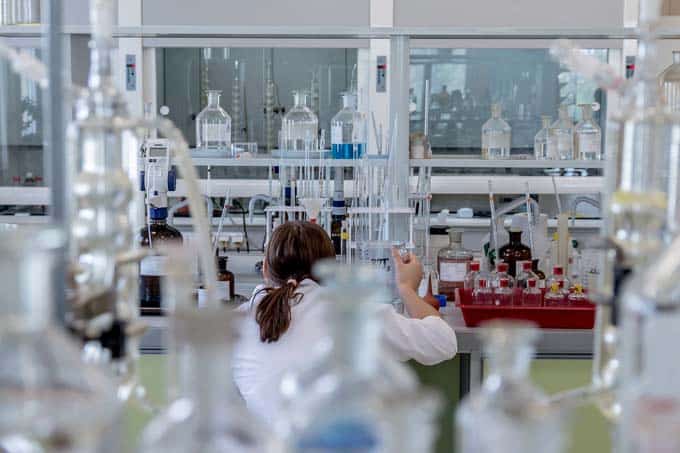Confident contract manufacturers in competition with pharmaceutical companies
According to a new study, 37% of contract manufacturers now act as end-to-end service providers for pharmaceutical companies. More than half of the marketing authorization holders act as contract manufacturers themselves and offer unused capacities. Pharmaceutical companies should therefore invest more in strategic partnerships with contract manufacturers.

Global production bottlenecks caused by the Covid 19 pandemic, but also increasingly uncertain global supply chains in the pharmaceutical sector, have recently provided an additional boost to the already fast-growing market for pharmaceutical contract development and manufacturing organizations (CDMOs). As a result, Marketing Authorization Holders (MAHs) are increasingly building strategic partnerships with CDMOs to secure quickly needed capacity, but also to increase supply security through multi-sourcing. This trend will continue with the emergence of new and advanced therapies, according to the results of the latest "Global CDMO Study 2022" by Strategy&, PwC's strategy consulting practice. The study analyzed 150 of the world's largest contract manufacturers in Europe, North America and Asia.
Contract manufacturer with extensive service portfolio
MAHs are pharmaceutical or research companies that have marketing authorization to market certain drugs. CDMOs can work on behalf of MAHs in the research and development and manufacture of these preparations. But as contract manufacturers grow in importance, the nature of their collaborations with pharmaceutical companies is also changing. 28% of the CDMOs surveyed already offer a comprehensive service portfolio for all types of drugs - small molecules, large molecules and advanced therapies. At the same time, 56% of the world's largest MAHs are already engaged in contract manufacturing themselves to generate additional revenue and absorb costs. "MAHs currently at the forefront of pharmaceutical drug manufacturing are increasingly relying on the technological expertise of CDMOs. This is also true in the advanced therapies market, including cell, gene and RNA therapies. This puts CDMOs in pole position to benefit from and play a significant role in shaping one of the fastest-growing markets. MAHs, on the other hand, should consider which production technologies are suitable for outsourcing and which fields they want to continue to strategically occupy and expand in the future," explains Dr. Jens Neumann, co-author of the study and partner at Strategy&.
Cooperation instead of competition
CDMOs can benefit from increased transparency, greater flexibility, faster transactions and shared incentives in strategic partnerships with MAHs, the study notes. With end-to-end services, CDMOs significantly increase their chances of strategic cooperation with pharmaceutical companies, the analysis adds. 37% of the CDMOs studied therefore offer services that cover the entire value chain, from development to the manufacture of commercial drug substances and products to packaging. 43% of the companies analyzed that focus mainly on CDMO services ("pure play") now operate as full-service providers with end-to-end services. Only 17% of them focus their activities on a single step in the value chain. CDMO businesses of MAHs as well as generic manufacturers follow this trend (38% and 36% end-to-end services, respectively). Development services are already included in the portfolio of offerings at 92% of CDMOs in North America and 84% of CDMOs in Europe, while in Asia commercial production of drug substances is the most widespread and is offered as a service by 92% of CDMOs.
Increased focus on novel therapies
In addition to vertical expansion, CDMOs are also showing themselves to be strategic partners for MAHs in horizontal value creation activities. In particular, "Pure Play" CDMOs are continuously expanding their service offering to include the various production technologies. Around 38% of "Pure Play" CDMOs are active in all three of the above areas, with 92% still involved in traditional small molecule manufacturing. This underscores the need to maintain a risk-balanced portfolio of traditional and novel therapies. At the same time, 45% of the "pure play" CDMOs already provide services in the area of advanced therapies (compared to 34% of all CDMOs within the study), leading by far the fastest-growing market segment.
"Strategic alliances are an important key for MAHs and CDMOs to introduce new products and hold their own on the market in the long term. The prerequisite for this is a critical look at their own overall strategy, which should also include the value chain, production technologies, services and locations. CDMOs should focus on offering their customers holistic and efficient solutions as well as quality products. On the MAH side, the establishment of professionalized CDMO management is just as essential for long-term business success as targeted communication about the future direction of the company to its own employees," concludes Dr. Jens Neumann.
Source: PwC









